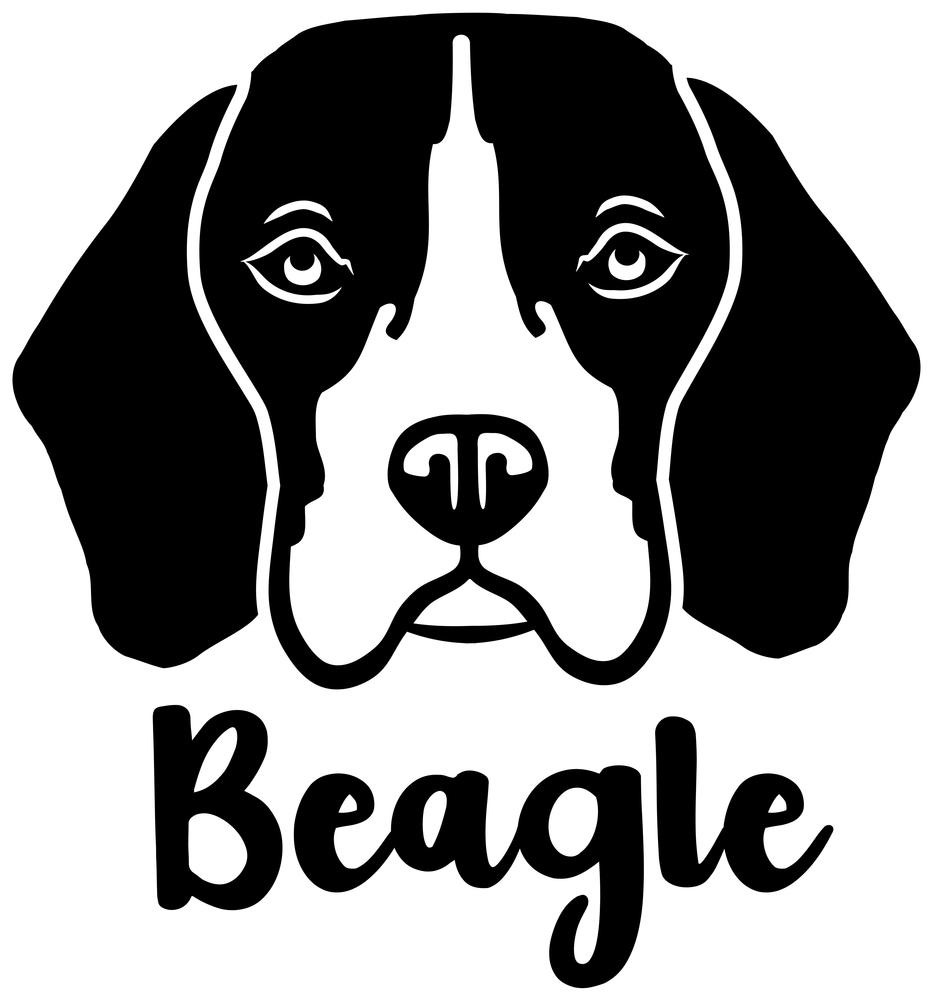
Introduction to Beagle Health and Diet
As a beagle owner, ensuring your furry friend’s health and well-being is a top priority. One of the most effective ways to do this is by providing a balanced and nutritious diet. This article will explore the importance of a healthy diet for beagles and discuss common health issues related to diet.
- Importance of a Healthy Diet for Beagles
- Common Health Issues in Beagles Related to Diet
A healthy diet is crucial for a beagle’s overall health and longevity. Beagles, like humans, require a balanced diet to maintain their energy levels, support their immune system, and promote healthy growth and development. A diet rich in proteins, carbohydrates, fats, vitamins, and minerals can help prevent various health issues, including obesity, heart disease, and skin problems. It can also contribute to a shiny coat, healthy skin, and bright eyes.
Beagles are prone to certain health issues that can be directly linked to their diet. One of the most common problems is obesity. Beagles love to eat, and without proper portion control, they can easily become overweight. This can lead to a host of other health problems, including diabetes, heart disease, and joint issues.
Another common health issue is food allergies. Some beagles may be allergic to certain types of food, which can cause skin irritations, digestive problems, and other symptoms. Therefore, it’s important to monitor your beagle’s reaction to different foods and consult a vet if you notice any adverse reactions.
In the following sections, we will delve deeper into understanding beagle nutrition, creating a beagle diet plan, and providing tips on feeding your beagle. Stay tuned for more insights to help you keep your beagle healthy and happy.
Understanding Beagle Nutrition
Feeding your Beagle a balanced diet is crucial for their health and longevity. In this section, we will delve into the essential nutrients that Beagles need and understand their unique dietary requirements.
Beagle Nutrition Guide
Beagles, like all dogs, require a balanced diet to maintain their health. However, due to their active nature and unique metabolic needs, they may require certain nutrients in different quantities than other breeds. Let’s explore these aspects in detail.
- Essential nutrients for Beagles
- Protein: Beagles are active dogs and need protein to build strong muscles. The protein should come from high-quality sources like chicken, beef, or fish.
- Fats: Fats provide the most concentrated source of energy. They also help keep your Beagle’s skin and coat healthy.
- Carbohydrates: Carbs provide energy and are essential for brain function. However, they should be complex carbohydrates, not simple sugars.
- Vitamins and Minerals: These are necessary for various bodily functions, including bone health, blood clotting, and immune response.
- Understanding Beagle’s unique dietary needs
Beagles require a range of nutrients to stay healthy. These include:
Beagles have a higher risk of obesity due to their love for food and ability to overeat. Therefore, portion control and a balanced diet are crucial. They also have a fast metabolism, which means they burn off calories quickly. This makes high-protein, low-fat diets ideal for them.
Beagles also have a predisposition to certain health issues like hip dysplasia and hypothyroidism, which can be managed with a proper diet. For instance, a diet rich in Omega-3 fatty acids can help manage inflammation associated with hip dysplasia.
In conclusion, understanding your Beagle’s nutritional needs is the first step towards ensuring their health and happiness. Always consult with your vet before making any significant changes to your Beagle’s diet.
Creating a Beagle Diet Plan
Creating a diet plan for your beagle is a crucial step in ensuring their overall health and well-being. This process involves understanding your beagle’s unique needs and tailoring their diet accordingly. Here are some steps to help you develop a beagle diet plan.
Steps to Develop a Beagle Diet Plan
- Assessing your Beagle’s current health status
- Consulting with a vet
- Considering your Beagle’s age, weight, and activity level
The first step in creating a diet plan for your beagle is to assess their current health status. This includes checking their weight, looking for any signs of illness, and taking note of their energy levels. If your beagle is overweight or has any health issues, these will need to be taken into account when creating their diet plan.
It’s always a good idea to consult with a vet before making any major changes to your beagle’s diet. They can provide valuable insights into your beagle’s nutritional needs and help you create a diet plan that’s tailored to their specific needs. You can also ask them about any concerns you may have about your beagle’s health or diet.
When creating a diet plan for your beagle, it’s important to consider their age, weight, and activity level. Younger beagles may require more calories and protein to support their growth, while older beagles may need a diet that’s lower in calories but higher in fiber. Similarly, beagles that are more active will require more calories than those that are less active. By taking these factors into account, you can create a diet plan that’s perfectly suited to your beagle’s needs.
In conclusion, creating a diet plan for your beagle involves assessing their current health status, consulting with a vet, and considering their age, weight, and activity level. By following these steps, you can ensure that your beagle gets the nutrition they need to stay healthy and happy.
Best Food for Beagles
Choosing the best food for your beagle is crucial to ensure they maintain optimal health and vitality. Beagles, like all dogs, require a balanced diet that includes proteins, carbohydrates, fats, vitamins, and minerals. However, the specific nutritional needs of beagles can differ from other breeds due to their unique characteristics and health predispositions.
High-Quality Food for Beagles
High-quality food for beagles should contain a balance of the right nutrients, be free from harmful ingredients, and come from reputable brands that prioritize pet health. Let’s delve into the specifics.
- Top Recommended Brands
- Ingredients to Look For
- Ingredients to Avoid
When it comes to high-quality food for beagles, some brands stand out for their commitment to pet health. These include Hill’s Science Diet, Blue Buffalo, and Royal Canin. These brands offer specially formulated food for beagles that cater to their specific nutritional needs.
High-quality beagle food should contain a high proportion of animal protein, which is essential for muscle development and maintenance. Look for food that lists a source of animal protein, like chicken or beef, as the first ingredient. Also, ensure the food contains a good balance of carbohydrates for energy, healthy fats for skin and coat health, and a range of vitamins and minerals for overall wellbeing.
While certain ingredients are beneficial for your beagle’s health, others should be avoided. Steer clear of foods that contain artificial colors, flavors, or preservatives, as these can cause allergies and other health issues. Also, avoid foods with high levels of fillers like corn, wheat, and soy, as these offer little nutritional value and can lead to weight gain and other health problems.
In conclusion, feeding your beagle high-quality food from reputable brands, rich in necessary nutrients, and free from harmful ingredients, is key to ensuring their health and happiness. Always remember, a healthy beagle is a happy beagle!
Beagle Feeding Guide
Feeding your Beagle properly is crucial for their health and happiness. This guide will help you understand how much and how often to feed your Beagle at different stages of their life.
How Much and How Often to Feed Your Beagle
Beagles, like all dogs, have different nutritional needs at different stages of their lives. Here’s a breakdown of how much and how often to feed your Beagle:
-
Feeding schedule for puppies
Beagle puppies should be fed 3-4 times a day. They require a diet rich in protein to support their rapid growth. According to the American Kennel Club, puppies should eat about 1 cup of food for every 5 pounds of body weight daily.
-
Feeding schedule for adult Beagles
Adult Beagles should be fed twice a day. They need a balanced diet of proteins, carbohydrates, and fats. On average, an adult Beagle should eat about 1.5 cups of high-quality dog food each day.
-
Feeding schedule for senior Beagles
Senior Beagles, usually those over 8 years old, should also be fed twice a day. However, they may require fewer calories if they are less active. It’s important to monitor their weight and adjust their food intake as necessary to prevent obesity.
Remember, these are general guidelines and individual needs can vary depending on your Beagle’s size, weight, and activity level. Always consult with your vet if you have any concerns about your Beagle’s diet.
Beagle Diet Tips
As a beagle owner, it’s essential to understand the dietary needs of your furry friend. A well-balanced diet is crucial for your beagle’s overall health and well-being. Here are some tips to ensure your beagle enjoys their food and maintains a healthy diet.
Ensuring Your Beagle Enjoys Their Food
- Making mealtime fun: Beagles are known for their playful nature. Incorporating play into mealtime can make it an enjoyable experience for your beagle. Try using puzzle feeders or food-dispensing toys to stimulate your beagle’s mind and make eating more fun.
- Dealing with picky eaters: If your beagle is a picky eater, try introducing new foods gradually. Mixing a small amount of the new food with their old food can help ease the transition. Remember, patience is key when dealing with picky eaters.
- Transitioning to a new diet: Changing your beagle’s diet should be done gradually over a week or two. This can help prevent digestive upset and make the transition smoother. Start by mixing a small amount of the new food with the old, gradually increasing the new food’s proportion.
- Role of fruits and vegetables in a Beagle’s diet: Fruits and vegetables can be a healthy addition to your beagle’s diet. They provide essential vitamins and minerals, and can also add variety to their meals. However, not all fruits and vegetables are safe for dogs, so always do your research first. Wikipedia has a comprehensive list of safe and unsafe foods for dogs.
- Importance of hydration: Just like humans, dogs need to stay hydrated. Always ensure your beagle has access to fresh, clean water. This is especially important during hot weather or after physical activity.
- Benefits of a balanced diet: A balanced diet can help maintain your beagle’s health, energy levels, and weight. It can also support their immune system and promote a shiny coat and healthy skin. Always choose high-quality dog food that meets your beagle’s nutritional needs.
- Recap of key takeaways: Making mealtime fun, dealing with picky eaters, transitioning to a new diet, incorporating fruits and vegetables, staying hydrated, and maintaining a balanced diet are all essential aspects of your beagle’s nutrition.
- Final thoughts on Beagle nutrition: Your beagle’s diet plays a significant role in their health and happiness. By following these tips, you can ensure your beagle enjoys their food and maintains a healthy lifestyle. Remember, every dog is unique, so it’s important to tailor your beagle’s diet to their specific needs and preferences.





